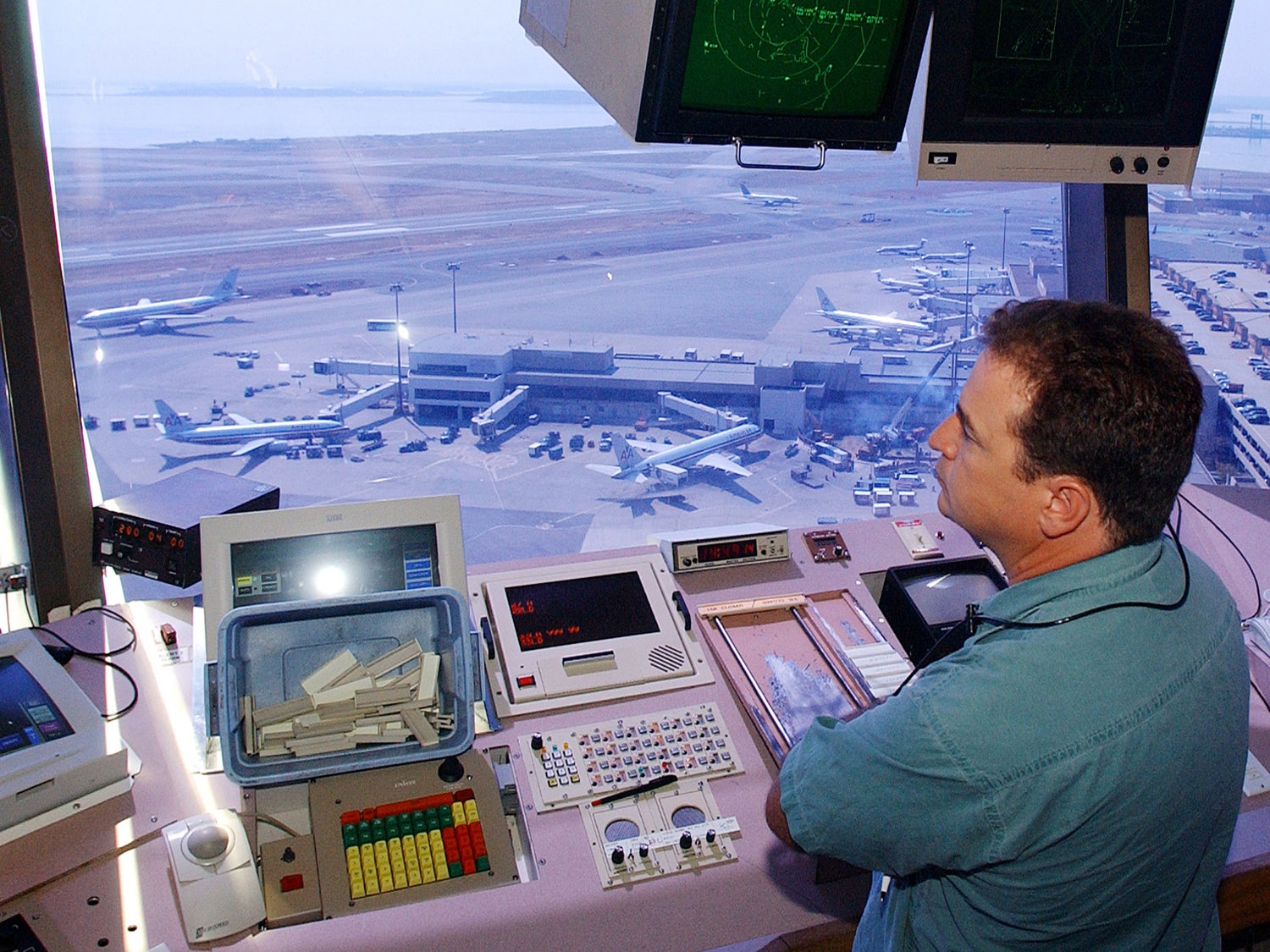
Pre-employment test: This assessment determines whether candidates have the personality to become an air traffic controller. Besides meeting educational and training requirements, aspiring air traffic controllers can complete the following certifications:

There are many certifications for roles in the aviation industry. Related: What Is Off-the-Job Training? Methods and Benefits Certifications Moving to a new facility or taking on a supervisory role typically requires additional training.

Many air traffic controllers complete multiple training programs throughout their careers.

The FAA requires air traffic controllers to enroll in an FAA Academy training program, which lasts up to three months at the agency's facility in Oklahoma City, Oklahoma. Related: Pros and Cons of Being an Air Traffic Controller Training Post-secondary education and work experience: Alternatively, candidates can also have a combination of work experience and college education that totals three years. Work experience: The FAA also accepts candidates with three years of general work experience if they show increasing levels of responsibility. These degrees for air traffic controllers teach students the fundamentals, like airspace charts and clearances, weather issues and FAA regulations. To work as an air traffic controller, the Federal Aviation Administration (FAA) requires candidates to have the following education or equivalent:Īir Traffic Collegiate Training Initiative degree: Many candidates earn an associate or a bachelor's degree from an Air Traffic Collegiate Training Initiative (AT-CTI) program the FAA approves. Their other qualifications include: Education The FAA requires candidates to be between 18 and 30 years old and be a citizen of the United States. Related: How Much Do Air Traffic Controllers Make? Air traffic controller requirementsĪir traffic controllers use a specific combination of education, work experience, training and soft skills. Since these specialists work for the Federal Aviation Administration (FAA), which is a governmental agency, they receive good benefits along with their annual pay. Their experience level and location typically determine their average salary. Many air traffic controllers work full-time jobs and may work in the morning, evening or overnight. The average salary for air traffic controllers is $129,750 per year.
Air traffic controller school list how to#
Related: How To Become an Air Traffic Controller Average salary for air traffic controllers They communicate the details of the issue to airport staff and other stakeholders or officials within specific time frames. When aircraft enter or leave these limitations, controllers confirm the transfer of control.įollow emergency protocol: When emergencies occur, air traffic controllers follow procedures. Oversee aircraft control transfers: They monitor aircraft within certain airspace limitations. Pilots typically receive permission to land or depart from air traffic controllers. Instruct pilots: Most times, these specialists instruct airline pilots when and where to operate aircraft.

Provide essential information to pilots: Air traffic controllers convey critical data to all types of pilots, such as severe weather in their path, runway issues and other vital information for safe operation. Tower controllers specialize in monitoring aircraft on the ground, approach and departure controllers control movement during takeoff and landing and en route controllers direct aircraft movement between airports' airspace. Monitor and control aircraft movement: Air traffic controllers use computers and monitors to observe and track aircraft within their jurisdiction. Air traffic controllers also perform the following tasks: They communicate with pilots to ensure they maintain safe distances from other aircraft. What does an air traffic controller do?Īir traffic controllers oversee aircraft movement. In this article, we explain what an air traffic controller does, discuss the salary and job requirements, explain the work environment and provide a list of steps for how to become one. If you're interested in working directly with aircraft personnel, consider working as an air traffic controller. People who work within the air traffic control industry often oversee flight plans and communicate regularly with pilots about landing and takeoff. Air traffic control refers to the monitoring of aircraft, like planes and helicopters, to maintain a safe distance between each aircraft.


 0 kommentar(er)
0 kommentar(er)
